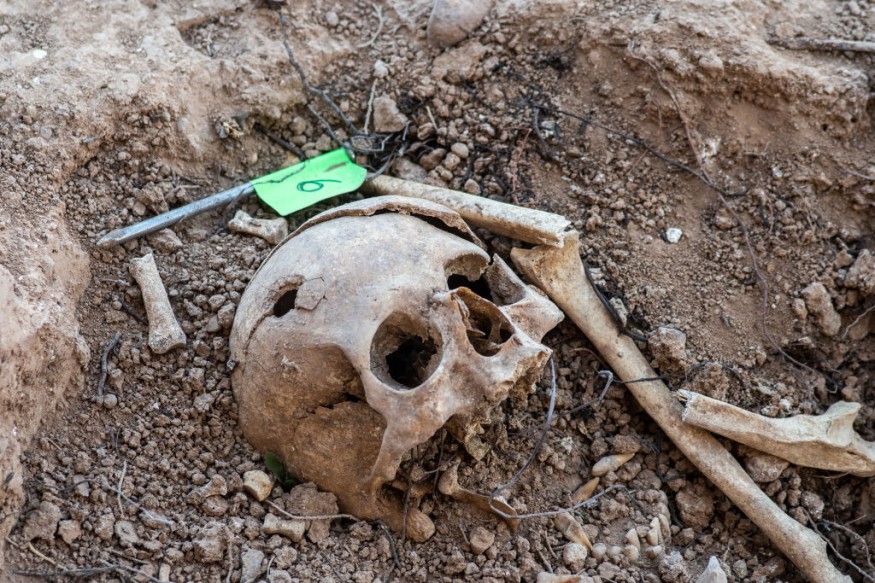The historic discovery of over a hundred skulls was made close to the Guatemalan border in a place plagued with smuggling gangs.
As indicated in a Mirror report, the pile, specifically of 150 skulls that ignited a murder probe following their finding in a Mexican cave were in fact, the remains of "women sacrificed to the Aztec gods" thousands of years back.
Investigators handling the team thought the decapacitated skulls belonged to unfortunate victims of merciless local gangsters and established a probe to unveil how the remains got there.
After a decade of extensive tests, experts discovered that the women were not victims of murder. Rather, they were human sacrifices beheaded during rituals to the Aztec gods millennia ago.

Skull Displayed in 'Tzompantli'
According to a spokesperson for the Mexican National Institute of Anthropology and History, INAH, believing they were searching for a crime scene, investigators retrieved the bones and began to examine them in Tuxtla Gutierrez, the capital of the state.
Experts have also claimed that the unfortunate victims had been beheaded and their skulls were exhibited in a trophy rack also known as "tzompantli."
It has been believed that the women were billed between 900 and 1200CE, What confused investigators is that pre-Hispanic skull piles typically exhibit a hole that reveals a hole knocked through every side of the skull and are located in plazas, rather than in caves.
In a similar report, the Daily Star said that among the victims of this latest find, "there were more women" compared to men, with none of them, having any teeth.
A Form of Human Sacrifice
In the wake of this discovery, Javier Montes de Paz, an archeologist said people need to probably call archeologists, instead of the police.
He explained when people are finding something that could be an "archeological context." This means that it should not be touched and local authorities, or directly the INAH need to be notified or
A few years back, particularly in 2017, archeologists discovered 650 skulls caked in lime at one of the main temples in the Aztec capital Tenochtitlan, the Templo Mayor, which went on to become the Mexico City. More so, they discovered thousands of skull fragments as well, encased in the same central structure.
After a few years, Mexican archeologists discovered the remains of more than 100 Aztec men, women, and children who were suspected to have been sacrificed to gods.
Part of a 5-Meter Skull Rack
In connection to Mexico City's Templo Mayor excavation site, in 2015, archeologists working there discovered a large wall of skulls that confirmed the accounts of the Spanish chronicles.
Pile of 150 female skulls found in cave were human sacrifices decapitated in ritual – World News https://t.co/IIYAobU2ot
— European Press (@european_presss) May 1, 2022
The gruesome discoveries were found during the restoration of a building located in Mexico City and are believed to be part of a five-meter "skull rack" at a shrine to the "Aztec god of the sun, war and human sacrifice," as specified in a similar European Press report.
Hundreds of human heads have been excavated in the past at the site, first discovered three years ago.
Report about the 150 skulls discovered is shown on USA TODAY's YouTube video below:
RELATED ARTICLE : Stone Age Archaeological Ornaments Reveal How Slate Rings from 6,000 Years Ago Symbolize Connection
Check out more news and information on Archeology in Science Times.











